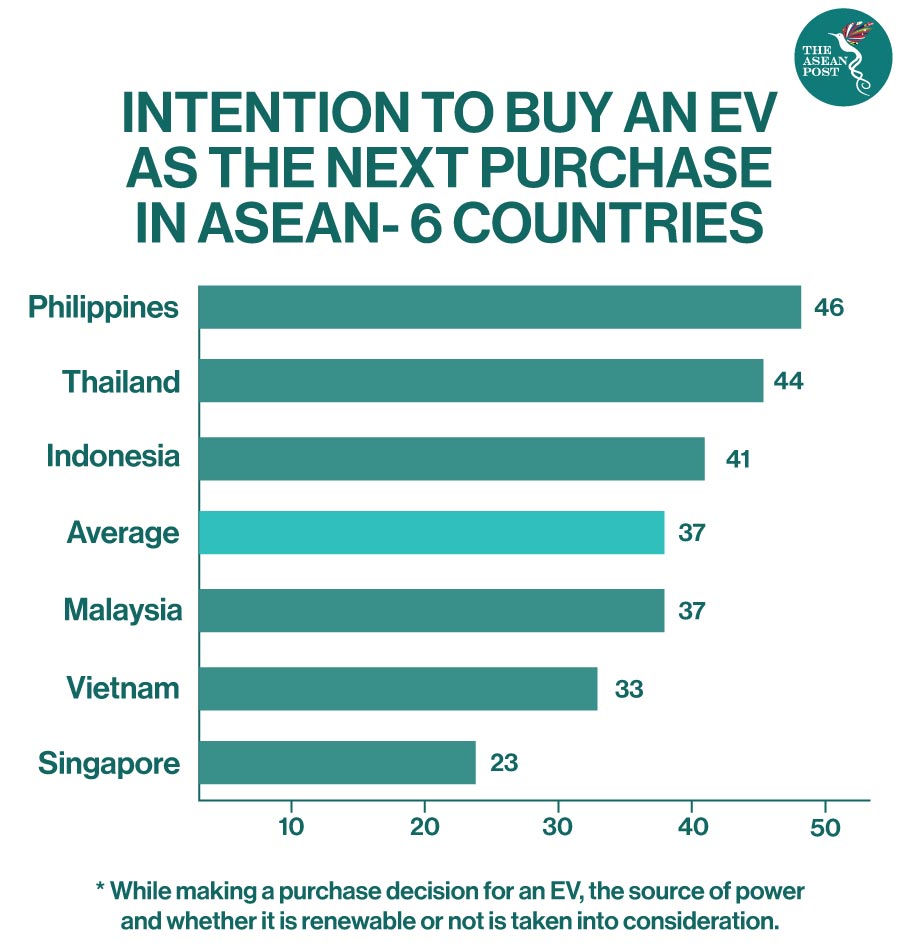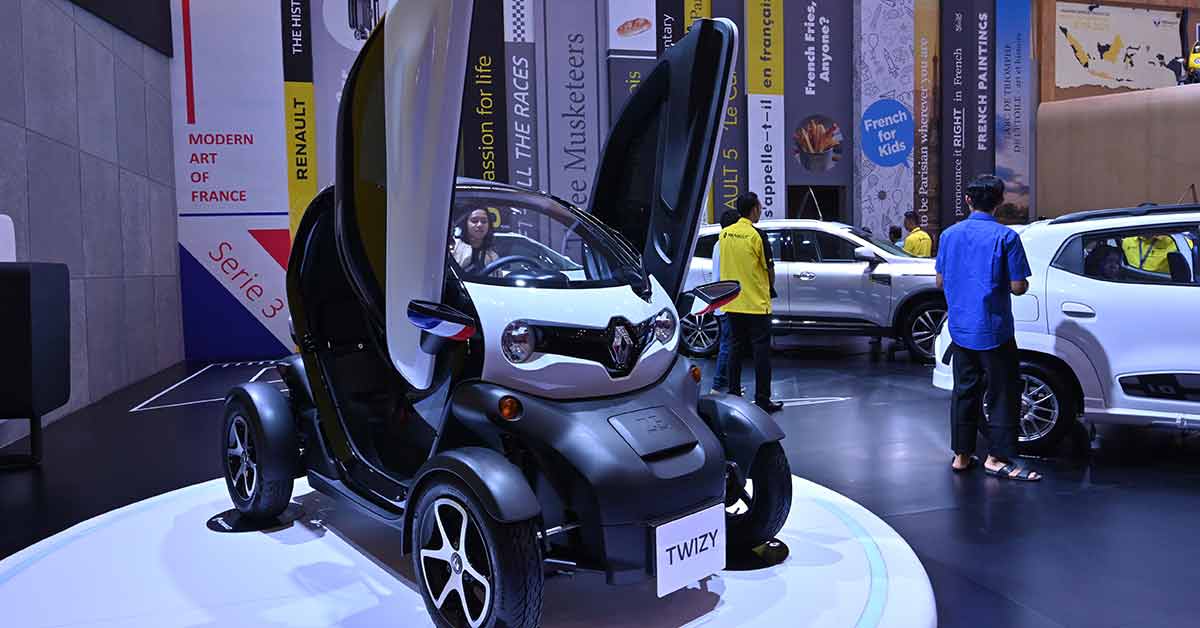Electric Vehicles (EVs), including hybrid electric cars, can drastically reduce carbon emissions released into the environment. Compared to conventional cars that release unhealthy amounts of carbon dioxide, carbon monoxide and nitrogen oxide into the environment, battery-electric cars effectively produce zero-emissions from their tailpipes.
Bloomberg Energy Finance predicts that 54 percent of new cars sold in 2040 will be EVs, accounting for 33 percent of the global car fleet by then.
A study commissioned by Nissan in 2018 found that a third of Southeast Asian consumers are open to buying an EV. The study titled, ‘Future of Electric Vehicles in Southeast Asia’, found that while EV sales in ASEAN member states is generally weak – consumers in the Philippines, Thailand and Indonesia were the most enthusiastic about the future of EVs.
Proper policies and incentives will go a long way in getting more Southeast Asians to drive EVs.
A report published by the ASEAN Secretariat titled, ‘ASEAN Fuel Economy Roadmap for Transport Sector 2018-2025: With Focus on Light-Duty Vehicles’ found that strong EV sales in the Unites States (US), Europe, Japan and China are mainly driven by policy support and a minimum subsidy of US$3,000.

EVs are exempted from registration taxes in China, Denmark, Germany, some parts of India, the Netherlands, Norway, Sweden and United Kingdom (UK). Apart from monetary incentives, policies such as preferential access to otherwise restricted zones (e.g. low-emission zones), priority parking, road toll exemptions and the right to use bus lanes provide incentives to buy EVs – especially in urban areas.
Developments In ASEAN
Last year at a seminar in Bangkok, experts reminded the Thai government that high prices for EVs – along with the lack of EV charging stations – hamper its viability among buyers in the country.
The director of Thailand’s Tax Planning Office at the Excise Department, Nattakorn Uthensut, was then quoted by Thai media as saying that subsidies in other countries are helping boost sales of EVs – pointing out that the US subsidises US$7,500 for every new purchase.
While the Board of Investment of Thailand (BOI) has offered investment privileges for EV manufacturers since 2017, the starting prices of EVs is still quite high in Thailand – ranging from US$31,921 to US$63,842 – compared to gasoline vehicles’ that range from US$19,152 to US$22,344.
However, it is clear that the government of Thailand is getting more serious about EVs, establishing the National Electric Vehicle Policy Committee (NEVPC) earlier this year. The committee announced in March that an EV roadmap was developed to help the domestic car industry manufacture 1.2 million units in 10 years.
According to Industry Minister, Suriya Jungrungreangkit, the ministry is following the NEVPC’S roadmap to make the kingdom a major EV production base within five years. The first phase of the plan, starting this year, is aimed at adding 60,000 to 110,000 EVs annually to roads until 2022.
Before the COVID-19 pandemic, the Indonesian government set an ambitious target of 20 percent of vehicle production to comprise electric and hybrid vehicles by 2025. This included 20 percent of the targeted one million vehicles exports, rising to over 25 percent by 2030. Nevertheless, the country is reported to be struggling to keep its ambition of becoming a regional EV manufacturing hub on track as the pandemic plunged local demand for vehicles this year.
Nevertheless, Indonesia’s abundance of natural resources such as cobalt, zinc, manganese – raw materials for EV batteries – is seen as a key strength in attracting EV sector investment. According to media reports, the government has held talks with potential Chinese and South Korean investors in recent months. Hyundai Motor Group has also confirmed that it would build a new vehicle assembly plant in the ASEAN member state, with the first phase set to be completed towards the end of 2021.
Brunei, ASEAN’s smallest country, is already embarking on a shift towards EVs.
Recently, the Brunei Darussalam National Council on Climate Change (BNCCC) launched the country’s first climate change policy called “The Brunei Darussalam National Climate Change Policy” (BNCCP) to pave the pathway towards Brunei's low carbon and climate-resilience for a sustainable nation.
The policy focuses on 10 core strategic areas with objectives that are to be implemented in the next 15 years which include electric vehicles. It was reported that Brunei is looking to increase the total share of electric vehicles to 60 percent of total annual vehicles sales.
Related Articles:
